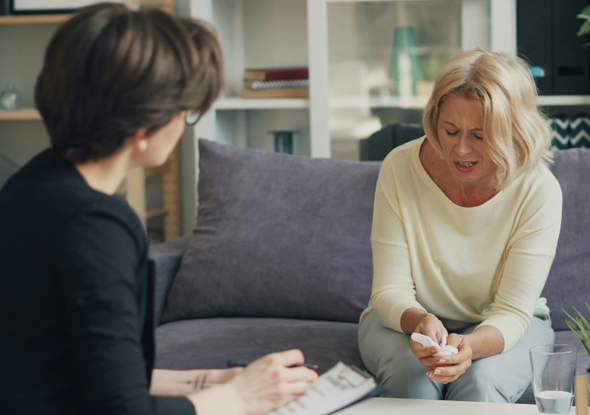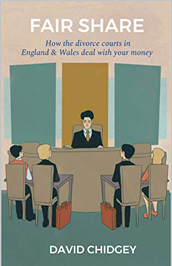UK Divorce FAQs - Everything You Need to Know

- This blog contains affiliate links, which we may receive a commission for purchases. The decision is yours, whether or not you decide to buy.
Divorce is both a legal process and a personal turning point. While every separation is unique, the law in England and Wales sets out a clear framework for ending a marriage. Recent changes have simplified some steps, yet decisions around finances, property, and childcare still need careful thought.
For further support on co-parenting and post-separation planning, visit co-parenting advice and resources.
1. What is a no fault divorce?
Since April 2022, couples in England and Wales have been able to divorce without assigning blame. Under the Divorce, Dissolution and Separation Act 2020, it is enough to confirm that the marriage has irretrievably broken down.
A no fault divorce can be started by one person (sole application) or jointly by both spouses. From the date the application is issued, there is a mandatory 20-week period before the conditional order can be requested. This time allows for reflection and for both parties to discuss arrangements for finances and children.
2. How do I start divorce proceedings?
An application can be made online through GOV.UK or by post. You will need details of both parties and must specify whether it is a joint or sole application. A court fee, currently £593, is payable when the application is submitted.
Many people choose to seek legal advice before starting, as a solicitor can ensure documents are completed correctly, prevent delays, and explain available options.
3. How long does a divorce take?
The minimum timeframe is around six to seven months. This includes the 20-week reflection period, followed by a six-week gap between the conditional and final orders.
If there are disputes over finances, property, or childcare, the process can take longer. Complex cases may require court hearings, valuations, or negotiations.
4. How much does divorce cost?
The standard court fee is £593. Legal fees vary depending on complexity. Where there is full agreement on all matters, costs are usually lower. Where disagreements require negotiation or court hearings, costs will be higher.
While couples sometimes agree to share the court fee, each party typically pays their own legal costs. In certain situations, a court can order one spouse to contribute to the other’s expenses.
5. How are finances and property divided?
There is no fixed 50/50 rule. The court applies factors set out in Section 25 of the Matrimonial Causes Act 1973, which include:
- The needs and welfare of children under 18
- Each person’s income, assets, and future earning capacity
- Contributions made during the marriage, financial or otherwise
- The standard of living during the marriage
- The length of the marriage and the age of each party
If agreement is reached, it should be formalised in a court-approved consent order to prevent future claims. If you’re navigating financial and property decisions after separation, help with post-divorce finances can offer valuable information.
6. What happens with children after divorce?
Parents are encouraged to decide arrangements between themselves. The term “custody” is no longer used, instead, the focus is on where the child lives and how time is shared. If no agreement is possible, a child arrangements order can be made by the court, with the child’s welfare as the top priority.
For additional help managing child arrangements and parenting plans, visit www.Divorcedparents.co.uk
7. Can I apply for divorce without a solicitor?
Yes. This is sometimes called a DIY divorce and may be suitable where there are no disputes and finances are simple. Applications can be made directly via GOV.UK. However, without professional advice, important issues such as pension rights, property transfers, or long-term financial security may be overlooked.
Final note
Even under the no fault system, divorce is a significant legal process with lasting implications. Taking time to understand the law and, where possible, seeking expert advice can help ensure a fair and secure outcome.
Disclaimer: This blog post is for informational purposes only and is not a substitute for professional advice or treatment. The author and publisher do not guarantee the accuracy or completeness of the information and are not liable for any damages resulting from its use. Please consult a qualified professional for advice specific to your situation.
PHOTO CREDIT: VITALY GARIEV
You may also like
Books
Buy now from Amazon
- The Co-Parenting Handbook
- Fair Share: How the divorce courts in England & Wales deal with your money
- The Book You Wish Your Parents Had Read THE #1 SUNDAY TIMES BESTSELLER
Podcast
Tamsin Caine is a Chartered Financial Planner and divorce specialist. Tamsin talks to professionals who can help you to make the right decisions about moving forward with your divorce to reach an amicable solution.
Articles
- 8 Ways You Can Stay Financially Fit After Your Divorce
- Five Things To Let Go Of After Divorce
- Buying A Home Post Divorce Part 1
Videos
Practical advice and tips from professionals on what to do with issues and challenges around divorce from parenting to finance.
Events
Practical tips & advice designed to help people going through divorce, whether online or in person.
Useful links
Here's a selection of organistaioins from parenting to finance to help you with your divorce.

.jpg)





.jpg)






